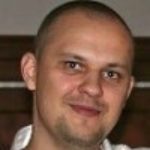Link to Pubmed [PMID] – 19654798
Opt Express 2009 Aug;17(16):13904-17
Laser speckle imaging (LSI) based on the speckle contrast analysis is a simple and robust technique for imaging of heterogeneous dynamics. LSI finds frequent application for dynamical mapping of cerebral blood flow, as it features high spatial and temporal resolution. However, the quantitative interpretation of the acquired data is not straightforward for the common case of a speckle field formed by both by moving and localized scatterers such as blood cells and bone or tissue. Here we present a novel processing scheme, we call dynamic laser speckle imaging (dLSI), that can be used to correctly extract the temporal correlation parameters from the speckle contrast measured in the presence of a static or slow-evolving background. The static light contribution is derived from the measurements by cross-correlating sequential speckle images. In-vivo speckle imaging experiments performed in the rodent brain demonstrate that dLSI leads to improved results. The cerebral hemodynamic response observed through the thinned and intact skull are more pronounced in the dLSI images as compared to the standard speckle contrast analysis. The proposed method also yields benefits with respect to the quality of the speckle images by suppressing contributions of non-uniformly distributed specular reflections.

